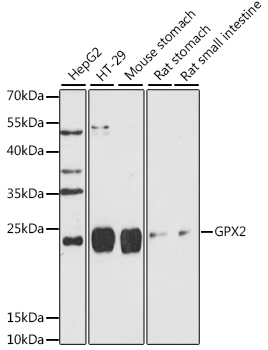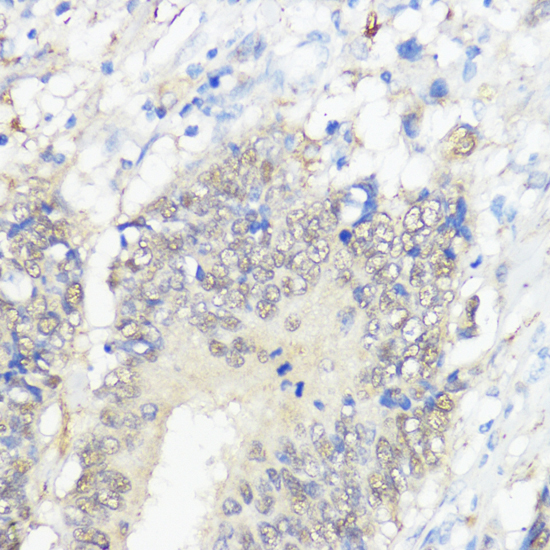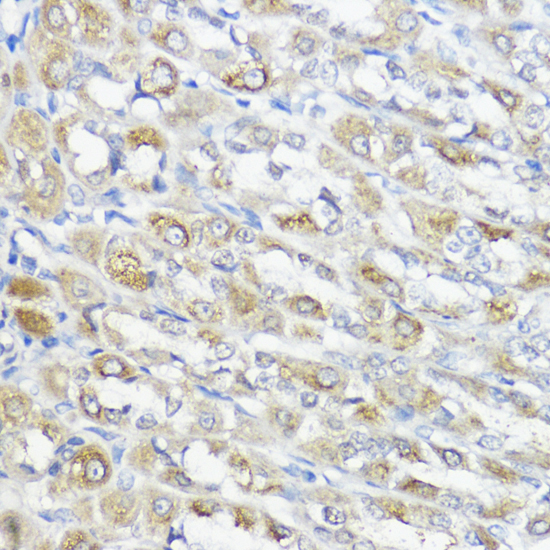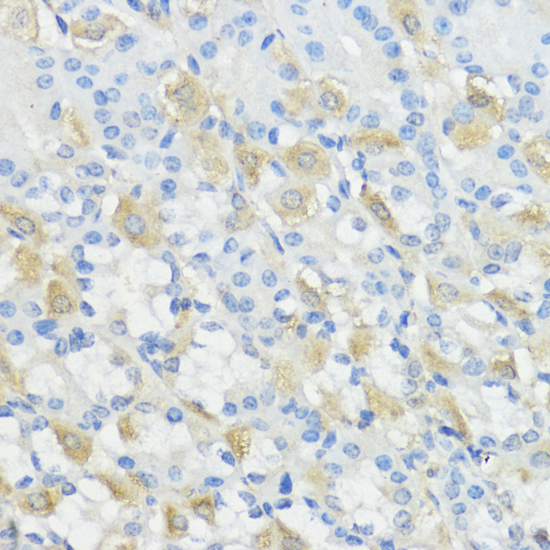-
Product Name
GPX2 Polyclonal Antibody
- Documents
-
Description
Polyclonal antibody to GPX2
-
Tested applications
WB, IHC
-
Species reactivity
Human, Mouse, Rat
-
Alternative names
GPX2 antibody; GI-GPx antibody; GPRP antibody; GPRP-2 antibody; GPx-2 antibody; GPx-GI antibody; GSHPX-GI antibody; GSHPx-2 antibody; glutathione peroxidase 2 antibody
-
Isotype
Rabbit IgG
-
Preparation
Antigen: Recombinant fusion protein containing a sequence corresponding to amino acids 100-180 of human GPX2 (NP_002074.2).
-
Clonality
Polyclonal
-
Formulation
PBS with 0.02% sodium azide, 50% glycerol, pH7.3.
-
Storage instructions
Store at -20℃. Avoid freeze / thaw cycles.
-
Applications
WB 1:500 - 1:2000
IHC 1:50 - 1:200 -
Validations

Western blot - GPX2 Polyclonal Antibody
Western blot analysis of extracts of various cell lines, using GPX2 antibody at 1:1000 dilution.Secondary antibody: HRP Goat Anti-Rabbit IgG (H+L) at 1:10000 dilution.Lysates/proteins: 25ug per lane.Blocking buffer: 3% nonfat dry milk in TBST.Detection: ECL Basic Kit .Exposure time: 90s.

Immunohistochemistry - GPX2 Polyclonal Antibody
Immunohistochemistry of paraffin-embedded human colon carcinoma using GPX2 antibody at dilution of 1:100 (40x lens).

Immunohistochemistry - GPX2 Polyclonal Antibody
Immunohistochemistry of paraffin-embedded rat stomach using GPX2 antibody at dilution of 1:100 (40x lens).

Immunohistochemistry - GPX2 Polyclonal Antibody
Immunohistochemistry of paraffin-embedded mouse stomach using GPX2 antibody at dilution of 1:100 (40x lens).
-
Background
Could play a major role in protecting mammals from the toxicity of ingested organic hydroperoxides. Tert-butyl hydroperoxide, cumene hydroperoxide and linoleic acid hydroperoxide but not phosphatidycholine hydroperoxide, can act as acceptors.
Related Products / Services
Please note: All products are "FOR RESEARCH USE ONLY AND ARE NOT INTENDED FOR DIAGNOSTIC OR THERAPEUTIC USE"
